By Patricia Caso/May 26, 2015
Photos Courtesy Georgia Lyon
By the time teen author Georgia Lyon was seven years old, she considered herself an alien in a human world. At three, she had been diagnosed with autism. After reading her book How To Be Human: Diary of an Autistic Girl (@crestonbooks), I was struck by the courageous, honest, and often humorous way Georgia, using the pen name Florida Frenz, wrote and illustrated it.
“As I put it together, I realized that my life’s experiences had real potential to help others understand autism and have compassion for autistic people.” Georgia Lyon
Georgia, now 18, takes the reader inside her unique mind as she struggles, stumbles, and succeeds to integrate into the “human” world. Now comfortable with her autism, she is using her real name for this interview.
This busy, college-bound student took time out to give me insights on herself and the often misunderstood autistic condition which she proudly states does not define her anymore…
EYE: Why share your personal diaries and drawings and turn them into a book?
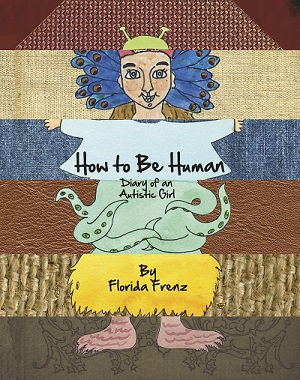 GEORGIA: I had wanted to be an author ever since reading Harry Potter and the Sorcerer’s Stone at age seven.
GEORGIA: I had wanted to be an author ever since reading Harry Potter and the Sorcerer’s Stone at age seven.
I wrote a slew of adventure-fantasy stories throughout my childhood, but it was not until fourteen that I considered my own life’s story might be of interest to others.
Originally, How to Be Human only fulfilled my selfish desire to be a published author. As I put it together, I realized that my life’s experiences had real potential to help others understand autism and have compassion for autistic people.
EYE: How do you think your experience can help others?
GEORGIA: I wanted to help other people with autism and also without, who were going through the same challenges that I was. I wanted to help them feel that the world was not an alien place and show them that it’s possible to adapt, that there are tools and resources out there. And if you have enough determination, you can make it through, even if it seems difficult.
EYE: When did you realize you were not like others?
GEORGIA: I found out while watching a television show called Dogs With Jobs. One episode featured a dog that worked with an autistic boy. I noticed the boy flapped his hands when he was excited, something I did as well.
Otherwise, he seemed completely different from me, but I asked my mom whether I was like the boy. She was stunned for a moment, then confirmed that yes, I indeed had autism. I was seven at the time.
Georgia Lyon’s How To Be Human Video
EYE: Did you understand what that meant?
GEORGIA: I did not understand what the word meant, but I assumed it couldn’t be anything good if my mom had avoided telling me for so long. Did that mean I had something that was considered a disability? Was I a deformed loser who would never be able to accomplish anything in life?
My first response was to be consumed with self-pity and lack of worth as a human being. Thankfully, my autism therapist, Shelah Moss, did not allow me to wallow. She challenged my self-pity and focused me into more productive emotions. Knowing the cause of my difficulties inspired me to double my efforts to overcome them.
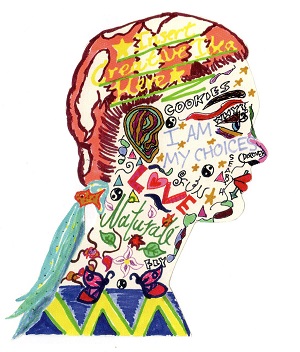
EYE: How did she help?
GEORGIA: Shelah tapped into my passion for art. She had me draw and paint illustrations to express the ways I felt about myself and others. The core of the problem is that an autistic brain doesn’t understand emotions. Our brains were built to understand concepts that can be broken down into logical pieces.
Most of us understand math facts well because the steps used to get the answer are right or wrong. Emotions can sometimes be broken down rationally, but even then it’s hard to grasp their cause-and-effect relationship.
For example, what makes people sad and how they react to that sadness means looking at that reaction and trying to guess what caused it. Normal people do complicated emotional calculus everyday without consciously realizing it.
EYE: Are all autistic people affected in the same way?
GEORGIA: Autism affects each autistic person in a unique way. You can do research and talk to experts, but even that isn’t enough to give you the whole idea. It’s important that you respect the autistic person’s individual feelings and interests, even if that means they’re a little bit out there and socially awkward.
“There’s a saying I really identify with: ‘If you’ve met one autistic person, you’ve met one autistic person.’”
EYE: Why is there a perception that autistic people are “into themselves?”
GEORGIA: The reality is we are interested in others and do want to inhabit the same universe as regular humans. It’s often hard to function on a basic level because of the flood of sensory input. We don’t have the space in our brains to absorb new knowledge on how to interact with others.
Often the attempt to socialize fails just seconds after it starts. It becomes uncomfortable for both the autistic and the regular person. We autistics are poorly rewarded for a task that is very hard, so we avoid doing it.
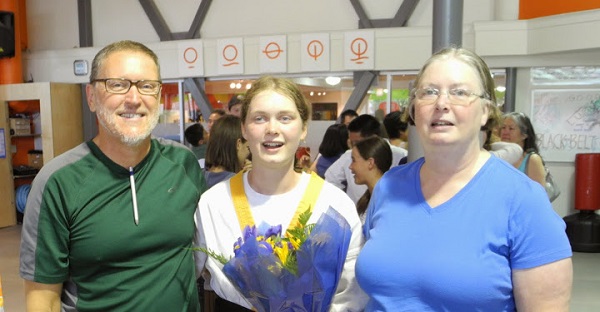
EYE: Is there something about autism that you’ve found you can embrace?
GEORGIA: Instead of seeing it as a part of me that I must overcome, I started to see how it was a part of me that could add depth and vibrancy to my life. I stopped caring so much about whether I learned the same way as the other students in school or looked different when I was talking to my friends.
I could still excel and grow! My real friends could love me and my quirks! In fact, due to my autism, I formed connections with some mature, inspirational high schoolers.
EYE: When your book was published in 2013, you used a pen name, Florida Frenz. Why have you decided to reveal your true name now?
GEORGIA: I chose to use the pen name Florida Frenz because by high school, I wanted to excel academically and socially, which took all of my time and energy. I could not have handled reactions to my book at school and how people may have judged me differently, although I was managing well there.
“I am a second semester senior now. I’ve been accepted to several colleges and I no longer care what people at school think of me or my book. I feel like I am comfortable being Georgia Lyon.”
EYE: Looking back, how have you grown?
GEORGIA: I’d done so much work when I was younger, like learning how to talk to people politely, how to interpret body language, how to understand facial expressions that were helpful. The one thing I had to develop is the ability to understand humor.
Learning to understand jokes when they’re appropriate, when they’re not, when they’re actually crossing lines, that’s a process. While a lack of empathy characterizes autism, I believe that my autism has made me more compassionate.
My life’s experiences with autism have allowed me to engage in introspection, question stereotypes, and embrace diversity. To me, my autism is no longer a disability, but rather it is a difference that has given me the ability to offer insight into the human condition.
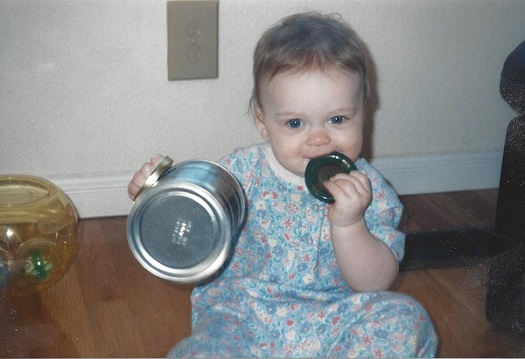
EYE: What do you continue to struggle with?
GEORGIA: That would be perfectionism and my tendency to become overly focused on the aspects of my life where success does not come easily to me. My friends and my parents provide great help.
I also rely on my ability to take a deep breath and calm down. I observe what is going on with new people and then I take a minute to think of the appropriate reaction. In these instances, I may try to crack a joke if it seems natural, but I do not force myself to be funny. I have learned from past experiences that this makes introductions even more awkward.
“Spending time with my friends make me feel that the world is beautiful. We laugh and remind each other that in spite of our quirks and imperfections, we are still lovable.”
EYE: What do you want from the college experience?
GEORGIA: I wish to meet new people, learn how to be more socially conscientious and aware, and explore many academic fields. But most of all, I would like to take risks and discover new aspects of myself.
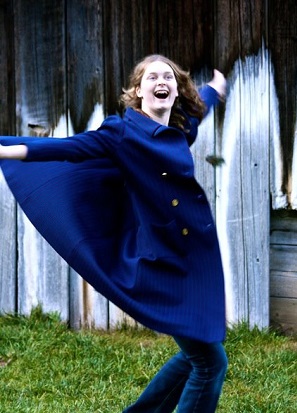
EYE: What are your dreams for a career and your future?
GEORGIA: I would have loved to go on Jon Stewart’s The Daily Show. I want How to Be Human to make the New York Times’ Bestseller List. As far as my career goals, is it possible for me to be a neurologist-lawyer-writer-advocate-artist and still get eight of hours sleep each night? I don’t think so.
I feel passionately about all those jobs, but I do not have enough time in my life to be all those at once. Whatever I do will have to have some type of writing in it. That I know!
EYE: What are the most important things you’ve learned so far?
GEORGIA: One important lesson I have learned is that everyone has insecurities and problems. When I first learned I was autistic, I feared that I was a freak of nature for having such a challenge. I learned that everyone has issues.
Those issues may not be able to be summed up with a name as concise and snazzy as autism, but they still will haunt the person in question until they address them. Most importantly, surround yourself with the people who make you feel confident and appreciated.
EYE: What do you want your readers to take away from your book?
GEORGIA: I hope they will acknowledge that difference is good and will embrace their differences. Our differences may cause us to encounter adversity, but if we are honest with ourselves and let the right people into our lives, we can gain the confidence necessary to overcome the obstacles we face.
“Also, I hope my readers will understand that we are all human. We should treat others with compassion and respect even if we cannot perfectly empathize with them.”
The message of the book, whether you have autism or something else that can be described as a mental difference or any kind of difference — whether you are quirky or normal — is that you are human and you deserve to be treated well.
EYE: Thank you, Georgia, for your generous time. You are a positive, inspiring force. TWE looks forward to your future accomplishments!
###
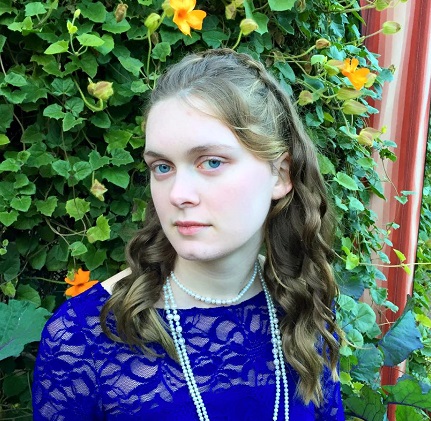
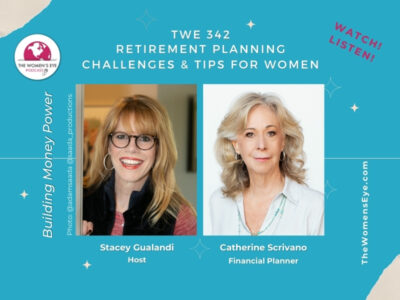


Leave a Reply